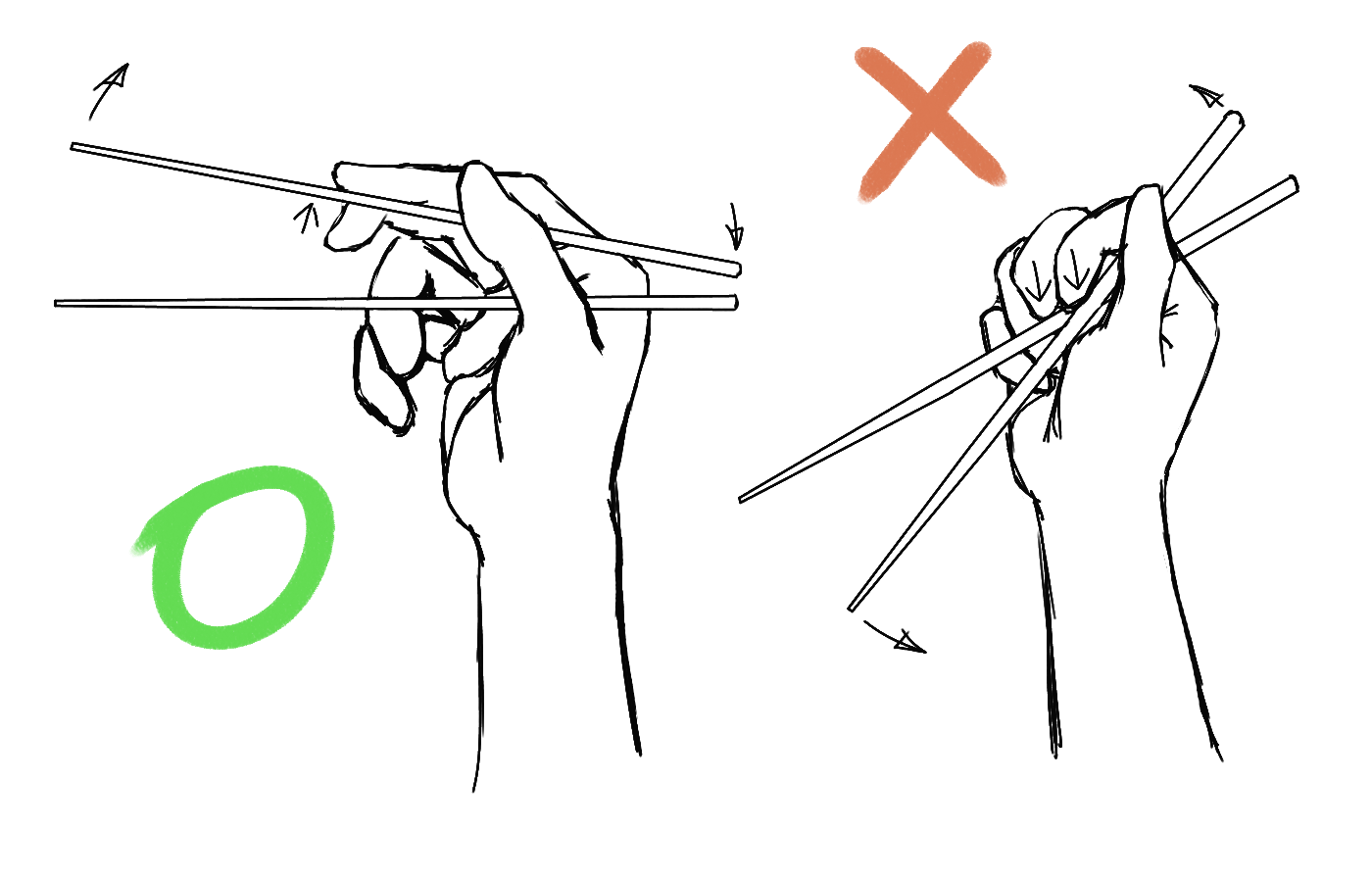Am
I using the chopsticks right?
This is not exactly a no-no question, but meal time is definitely not the best timing. When people ask me this question while the food is an inch away from my mouth, I just wish they would know better than to ask me when my mouth is salivating for the deliciousness right in front.
Why Not?
First of all, I express my appreciation to those who try to use chopsticks, and “excellent job” to those of you who continue trying! I definitely recognize that there is a whole new world in those skinny chopsticks. Mysteries and secrets reside within those bamboo sticks to those of you who did not grow up using them (exaggeration).
However, note that the skill of using chopsticks elegantly and gracefully does not come right after any 5 minute tutorials. It takes practice. Even for Asians (surprise). We used chopsticks three times every day growing up just like you brushed your teeth every day and night since they started growing. The good news is there are many Asians who choose spoons or forks over chopsticks. There are many Asian children who are commanded by their parents to learn chopsticks despite their reluctance.
The Rightly Way
It's a myth. Okay. Fine. Maybe it's not a myth, but do feel better when I tell you that even a lot of Asians don't use chopsticks the “right” way. The image below is a beautiful Asian lady holding the chopsticks in perhaps “the right way”.
The truth is I have been using chopsticks for decades, and I do not use it the same way as she does. Notice how she is holding at 1/3 of the way from the top? I hold the chopsticks at 1/3 of the way from the bottom. There are various ways of holding chopsticks. Therefore, the key thing to take away is to use it comfortably. After all, chopstick is a mean to eat. You are not tasting the chopsticks, you are eating what is in between them.
This is not exactly a no-no question, but meal time is definitely not the best timing. When people ask me this question while the food is an inch away from my mouth, I just wish they would know better than to ask me when my mouth is salivating for the deliciousness right in front.
Why Not?
First of all, I express my appreciation to those who try to use chopsticks, and “excellent job” to those of you who continue trying! I definitely recognize that there is a whole new world in those skinny chopsticks. Mysteries and secrets reside within those bamboo sticks to those of you who did not grow up using them (exaggeration).
However, note that the skill of using chopsticks elegantly and gracefully does not come right after any 5 minute tutorials. It takes practice. Even for Asians (surprise). We used chopsticks three times every day growing up just like you brushed your teeth every day and night since they started growing. The good news is there are many Asians who choose spoons or forks over chopsticks. There are many Asian children who are commanded by their parents to learn chopsticks despite their reluctance.
The Rightly Way
It's a myth. Okay. Fine. Maybe it's not a myth, but do feel better when I tell you that even a lot of Asians don't use chopsticks the “right” way. The image below is a beautiful Asian lady holding the chopsticks in perhaps “the right way”.
The truth is I have been using chopsticks for decades, and I do not use it the same way as she does. Notice how she is holding at 1/3 of the way from the top? I hold the chopsticks at 1/3 of the way from the bottom. There are various ways of holding chopsticks. Therefore, the key thing to take away is to use it comfortably. After all, chopstick is a mean to eat. You are not tasting the chopsticks, you are eating what is in between them.





.jpg)